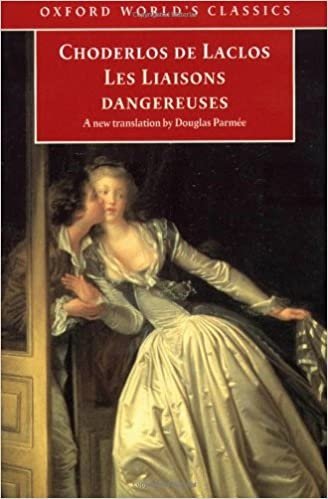Let Me (Re)tell You A Story
Jumping off of my post about the upcoming NaNoWriMo, I’ve declared this year’s project, and it is a retelling of a classic novel. NaNo seems like a good time to do a retelling, since the source material provides a ready plot and characters—that should make it easier to hit the word count goals, right? Well, kind of.
As a reader, I enjoy reading and watching retellings. The updated, remixed, or reimagined versions always seem to have a sense of play and whimsy, and in the best cases, they have a subversive interrogation of the original. I also enjoy finding the connections and understanding how the reteller transformed certain elements and what effects those transformations had. So as a writer, I’m thinking it’s a really good way to go nuts and have fun, with some built-in structure.
There’s also something attractive about being able to reintroduce a work to someone already familiar with the source, giving them a mix of the old and the new. West Side Story remains one of the high-water marks of retellings (and adaptations into a new form) because it does this so well, and does so without requiring viewer familiarity with Romeo and Juliet to be appreciated.
Are you a Jet or a Shark?
Most of all, I’m excited by the potential of retellings to be in conversation with an original work. No story is perfect, and retellings can provide a way for current authors to respond to a source’s perceived limitations. Circe is my recent favorite example for this—it focuses the lens on someone who’s been generally portrayed as a supporting character, and then expands on her and the world she moved in. In decentering the male gods and heroes of Greek myth, the retelling gives Circe more agency and depth, forever changing the character at least in my mind.
Of course a readerly appreciation of retellings is different from knowing how to write them, something that I’m discovering as I draft my first one. My new work-in-progress is based on Les Liaisons Dangereuses, a French epistolary novel from 1782 about scheming aristocrats. It’s since been reincarnated into a 1950s film about the Parisian bourgeoisie, a well-renowned stage play (this one more faithful to the original), and two Hollywood films (released within a year of each other) based on said play, and a teen dramedy set in Manhattan. I really imprinted on those films even before I started writing, and I thought, well, hey, this is a story I like. Maybe I should remix it.
Yet as I went through my rereading and my research, I began to feel a deep uncertainty regarding scope. What parts of the source material am I allowed to change? Which parts should I keep? To what extent can I tinker with it such that it is recognizable as a retelling, and yet fresh enough to be new and stand on its own? These are not questions I’ve had to answer before when I was drafting stories from whole cloth, and they seemed to provide new strictures that placed this whole endeavor in doubt.
For what the book’s about, this cover is pretty damn tame.
Not even a week ago, there was yet another online kerfuffle about retellings, and who or how they should be done: a writer tweeted a complaint about the prevalence of reimaginings and how “modern adaptations of ‘classic literature’ with POC, LGBTQ, or underrepresented cultures [are] such a fad.” I don’t need to point out how racist and bigoted that comment is, and I don’t feel the need to discuss or respond to it here. But it quelled the doubt I' spoke of by reminding me of what I’m looking to do with a retelling. That is, to break some shit.
I don’t mean to tear down the source material—though there is a lot to criticize about Les Liaisons Dangereuses, I still find it enjoyable and insightful regarding that era, and more generally about human nature. But retellings are most fun and work best when they provide a new perspective, and that can’t come about it I’m too concerned with changing things “just enough”.
This means I need to be comfortable with totally stripping and deconstructing the original, and imbuing it with my own non-white, non-upper class, non-Western canon raised, non-straight, point of view. Maybe it’s set in an interstellar empire, and maybe Merteuil is a gay man. Why not? Maybe Tourvel is a foreigner, even an alien. What if the story’s not just about psychosexual games but also about the petty squabbles of the privileged as a proxy to armed conflict? Does that change things too much? Maybe it does, and maybe that’s the point.
Image credits: Thumbnail photo by Michael Dziedzic on Unsplash; still frame from West Side Story, United Artists Productions (1961); Oxford Classics cover for Les Liaisons Dangereuses, Oxford University Press, 1999.

